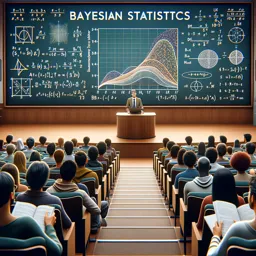Statistics is a branch of mathematics that deals with collecting, analyzing, interpreting, and presenting data. Whether you are a student, researcher, or just curious about the world, understanding statistics is essential for making informed decisions in various fields, from science to business.
What Is Statistics?
At its core, statistics helps us make sense of large amounts of data by summarizing and interpreting information. This is crucial for spotting trends, making predictions, and supporting arguments with evidence. Statistical methods can be simple, like calculating an average, or more complex, like determining the likelihood of an event.
Types of Statistics
- Descriptive Statistics: These techniques summarize and organize data. Common examples include mean (average), median, mode, range, and standard deviation.
- Inferential Statistics: This branch uses data from a sample to make predictions or inferences about a population. Techniques include hypothesis testing, confidence intervals, and regression analysis.
Basic Terminology
- Population: The entire set of subjects or items being studied.
- Sample: A subset of the population selected for analysis.
- Variable: Any characteristic that can be measured or categorized, such as age, height, or test scores.
- Data: The actual values collected from observations or experiments.
Common Statistical Measures
- Mean: The arithmetic average of a data set.
- Median: The midpoint value when data are ordered from smallest to largest.
- Mode: The value that occurs most frequently in a dataset.
- Range: The difference between the highest and lowest values.
- Standard Deviation: A measure of how much the values in a dataset vary from the mean.
Why Learn Statistics?
Acquiring statistical knowledge enables you to:
- Interpret data-driven reports and studies accurately.
- Critically evaluate the validity of claims based on data.
- Support your own findings and conclusions with evidence.
- Apply statistical reasoning in daily life and decision-making.
Getting Started
To begin your statistical journey, practice collecting data, use software tools like Excel or statistical calculators, and apply basic concepts to everyday situations. Consistent practice will make statistical thinking second nature over time.
























